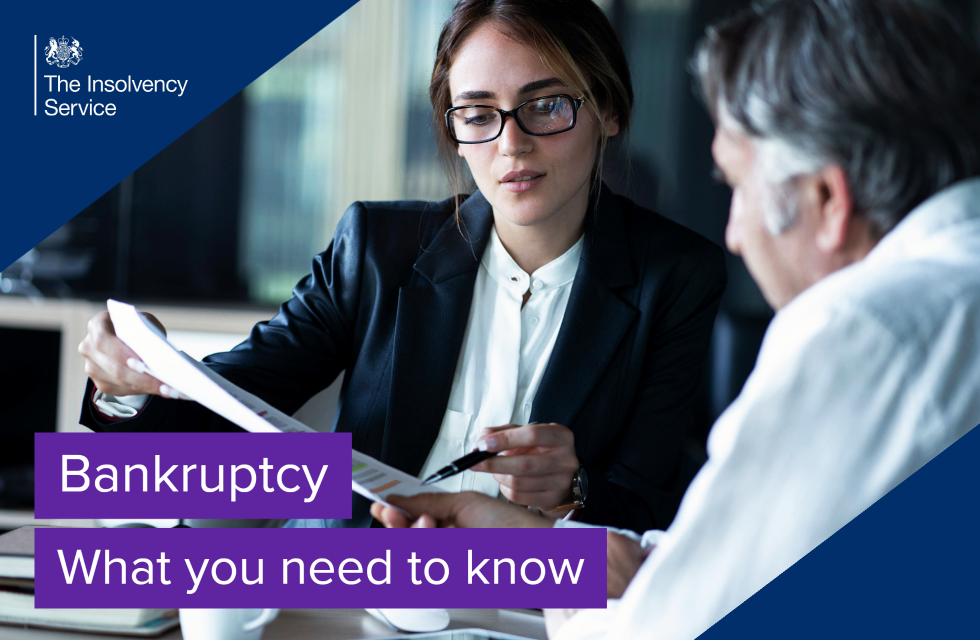The Single Strategy To Use For Insolvency Practitioner
The Single Strategy To Use For Insolvency Practitioner
Blog Article
Our Insolvency Practitioner Statements
Table of ContentsInsolvency Practitioner for BeginnersIndicators on Insolvency Practitioner You Need To KnowOur Insolvency Practitioner StatementsSome Of Insolvency PractitionerWhat Does Insolvency Practitioner Mean?What Does Insolvency Practitioner Do?The Best Guide To Insolvency PractitionerThe Single Strategy To Use For Insolvency PractitionerThe smart Trick of Insolvency Practitioner That Nobody is Discussing
This can happen for a variety of factors, consisting of poor monetary monitoring, unexpected expenses, or an adjustment on the market. If a firm is financially troubled, it might be forced to fold or liquidate properties to pay creditors. This can have a major influence on the business, workers, and investors.Why does a business enter into insolvency? There are a number of reasons why a company might get in right into insolvency.
Get This Report about Insolvency Practitioner
Other factors for insolvency include scams, mismanagement, and unanticipated prices. When a business comes to be insolvent, its possessions are used to repay its financial debts. This can have a significant influence on business, as it might no longer be able to continue running. Insolvency can also cause job losses and the closure of organizations.
This can have serious effects for the company, its stakeholders, lenders and the economy. The firm may be required to sell possessions, gave up staff and even fold. This can have a knock-on impact on the neighborhood community and the economic climate overall. Financial institutions might be omitted of pocket and the company's investors might see their investment vanish.
Bankruptcy is the procedure where a company is ended up and its properties are sold off to pay creditors. This is usually the last resource, as it can have an extremely negative result on the firm's credibility. Receivership occurs when a firm is not able to pay its debts and is positioned under the control of an outside administrator.
How Insolvency Practitioner can Save You Time, Stress, and Money.
Voluntary administration is comparable to receivership, but it is initiated by the supervisors of the firm instead of the lenders. This alternative is usually used when a business is encountering financial problems however there is still wish that it can be reversed. Business bankruptcy is a facility and serious problem that can have far-ranging effects for companies of all dimensions.
With the appropriate help, you can guarantee that your organization has the most effective possibility of weathering this challenging time. (Insolvency Practitioner)
Examine This Report on Insolvency Practitioner
Whatever your reason for closing your business, there are numerous factors to consider you have to deal with before 'shutting the doors'. There's additionally a whole lot you can do to make the process less stressful and obtain far better end results. Closing down your service is not nearly meeting the sensible and lawful requirements.
Deal with your staff members As a company, you need to monitor and give assistance to your workers during this demanding time. Know any type of possible wellness and well-being problems find more they may experience as a result of: work insecuritytransitioning with the sale of the businesschange in owners. You can: There are generally 2 circumstances in which you would voluntarily shut your company.
You also: do not desire to, or can't, market the businesshave no-one to take it over. You may be shutting your business since: it's not covering its overheads and running costsyou can't sustain the operating prices while attempting to sell it.
Some Ideas on Insolvency Practitioner You Need To Know
This may avoid you from coming to be insolvent or bankrupt, and help you to leave business with no long-lasting impacts. There are numerous things you require to attend to prior to closing your business. It is essential to have a leave strategy. Your accountant, solicitor or business advisor will certainly have the ability to assist you with this.

Depending on your lawful structure, all or some of the adhering to points may use to you when you willingly description close your service. Talk to your accounting professional, solicitor and service consultant about lawful needs for shutting your organization.
The Only Guide to Insolvency Practitioner
You need to settle all tax concerns for your business, also if it's no much longer trading. This includes your responsibilities relating to repayment of: fringe advantages taxpay-as-you-go (PAYG)superannuationemployment discontinuation.
Bankruptcy happens when your business can not pay its financial debts, which can result in your company shutting down. Different bankruptcy procedures use to individuals and firms.
If you try to manage it yourself, you'll require to interact with every financial institution separately to attempt to work out normal payment quantities. Bankruptcy or insolvency advisors can: assistance you with the processhelp you understand your optionsnegotiate with your financial institutions on your behalf. They hold specific licences and credentials in this specialized field.
Get This Report about Insolvency Practitioner
It's vital to acknowledge financial trouble early so you can look at means to stay clear of bankruptcy. You must likewise be conscious of financial institutions placing enquiries or defaults against your credit scores file.
Personal bankruptcy for sole investors and individuals within partnerships Personal bankruptcy procedures use to: Prior to starting an individual insolvency procedure, it's important to comprehend the: impact of the consequenceshow long the effect will certainly be., also recognized as a Component IX arrangement, allows you, or the designated manager, to negotiate with your lenders to pay a percent of her response the consolidated financial debts over a period of time to your manager, instead than trying to proceed making payments to each lender.
The Ultimate Guide To Insolvency Practitioner
Company insolvency and liquidation An 'financially troubled business' is not able to pay its debts or cover the cost of its overheads. In some situations, financially troubled business may enter into liquidation. Liquidation is when an independent licensed liquidator is appointed to take control over the company and wind up the company service in an orderly means.

The Single Strategy To Use For Insolvency Practitioner
Sonia Piccinini committed significant effort and time in the prep work of this magazine. The views expressed in the report are those of the IMF's Legal Department and must not be attributed to the Executive Directors or the Monitoring of the IMF. FRANOIS GIANVITI Recent experience has demonstrated the extent to which the absence of organized and effective insolvency procedures can intensify economic and monetary dilemmas.
Report this page